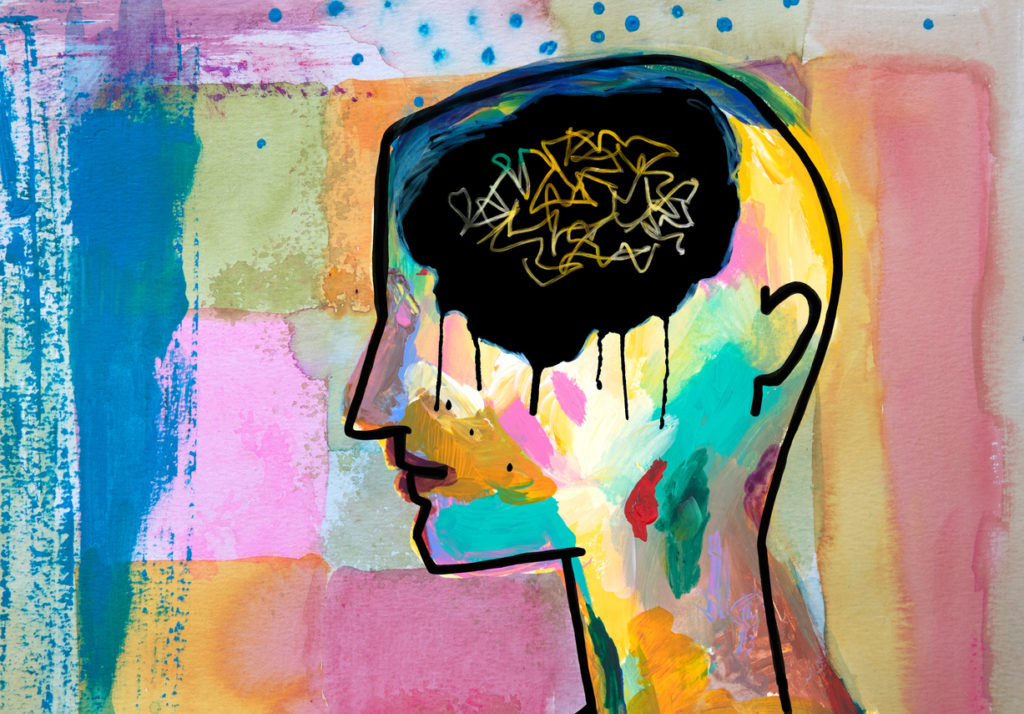The purpose of this study is to understand the role of genetics in the development of schizophrenia by studying heritable traits in families where at least one member has schizophrenia.
Official Title
A Neurobiological Investigation of Patients with Schizophrenia Spectrum Disorders and Their Siblings
Conditions
– Psychotic Disorder- Schizoaffective Disorder- Schizophrenia
Study Type
Observational
Study Design
Natural History
Further Details
Genetics play a significant role in the development of schizophrenia. This genetic study of schizophrenia seeks to identify genetic markers in families where at least one person has the diagnosis of schizophrenia and is willing to participate in the research. Eligible family members can contribute a sample of blood for genetic analysis. The member affected with schizophrenia (and if possible their siblings) can engage in a series of procedures that measure and compare neurobiological traits. In addition to the blood draw, participation can include clinical interviews, and a series of non-invasive neurological and neuropsychological procedures. Parental involvement is welcome but is limited to sharing relevant information through questionnaires and interviews and contributing a blood sample for genetic analysis. Genetic effects play a prominent role in the pathophysiology of schizophrenia. Prior attempts to link schizophrenia with genetic markers have largely failed for methodological reasons. New advances in molecular biology and quantitative genetics have provided techniques that are dramatically more powerful. We propose to take advantage of these techniques by studying a variety of quantitative traits associated with schizophrenia in patients and their siblings. This contrasts with prior linkage studies which have looked only at the relationship between genes and psychiatric diagnosis. Traits will include measurable, quantifiable neurobiological variables that have been implicated previously as possible phenotypes related to schizophrenia. These include tests of attention and cognition, eye tracking, evoked potentials, measures of schizotypy, and a variety of parameters using brain imaging. We will use a variety of genetic approaches, including, association studies, linkage with affected sib pairs, and quantitative trait loci (QTL) analysis with extreme discordant sib pairs to identify susceptibility loci and genes for biological phenotypes. Data from this study will also be used to assess the neurobiological meaning, or functional impact, of inheriting genes associated with schizophrenia.
Study Start
Eligibility & Criteria
Genders Eligible for Study: Both Accepts Healthy VolunteersCriteria INCLUSION CRITERIAPatients with schizophrenia and their siblings will be recrruited through families of current or former patients at NIMH, physician referrals, The National Alliance for the Mentally Ill (NAMI), Chestnut Lodge Hospital, St. Elizabeth’s Hospital, and other sources both locally and nationally.Subjects will range in age from 18-65 years.The affected sib must have evidence of a diagnosis of schizophrenia, schizo-affective disorder, psychosis N.O.S., or schizophreniform disorder as determined by a preliminary screen of records and treating therapists’ reports.EXCLUSION CRITERIAPersons who are mentally retarded, who suffer from organic brain damage, neurological disease, or have a significant history of alcoholism or substance abuse will not be included in the extensive phenotyping arm.
Total Enrolment
5400
Contact Details
[1] National Institute of Mental Health (NIMH) (US)
All content and media on the HealthEngine Blog is created and published online for informational purposes only. It is not intended to be a substitute for professional medical advice and should not be relied on as health or personal advice. Always seek the guidance of your doctor or other qualified health professional with any questions you may have regarding your health or a medical condition. Never disregard the advice of a medical professional, or delay in seeking it because of something you have read on this Website. If you think you may have a medical emergency, call your doctor, go to the nearest hospital emergency department, or call the emergency services immediately.







